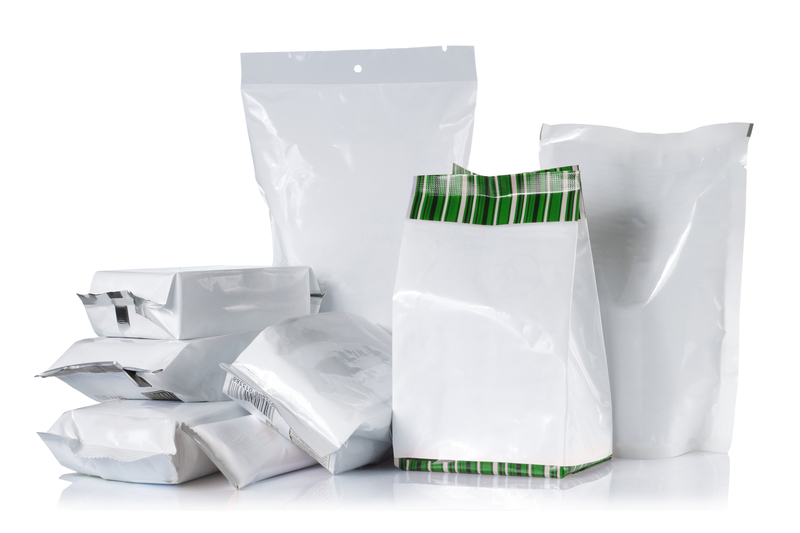Making Bulky Waste Disposal Cheap and Easy for Your Household
Dealing with large, unwanted items is a challenge most homeowners must face at some point. From old mattresses and worn-out sofas to broken appliances and garden clutter, bulky waste disposal can seem overwhelming and even expensive. However, with the right strategies, you can efficiently get rid of these items without breaking the bank. In this comprehensive guide, we'll unpack how to make bulky waste collection both affordable and effortless, transforming a dreaded task into a stress-free experience.
Understanding Bulky Waste: What Is It?
Many households struggle to define what counts as "bulky waste." Essentially, these are large items that cannot be collected through regular trash pickup due to their size or weight. Common examples include:
- Furniture: sofas, beds, tables, wardrobes, mattresses
- Large appliances: washing machines, fridges, ovens, water heaters
- Garden waste: tree branches, fencing, sheds (disassembled)
- Electronics: televisions, computers, large monitors
- DIY and construction debris: old carpets, flooring, doors, radiators
Knowing what qualifies as bulky waste in your locality is the first step toward easy and cost-effective disposal. Always check your local authority's guidelines for precise definitions.

Why Proper Bulky Waste Disposal Matters
Ignoring <=improperly handling<= large items is detrimental for several reasons. Negligence can lead to:
- Environmental harm: Dumping furniture or appliances illegally can contaminate local areas and water systems.
- Health hazards: Old mattresses and fridges can become breeding grounds for pests if left unattended.
- Legal repercussions: Many councils issue fines for fly-tipping or improper bulky item disposal.
Affordable Ways to Dispose of Bulky Waste
It's a misconception that getting rid of large items has to be expensive. Here are proven approaches to make bulky waste clearance easy on your wallet.
1. Check If Your Council Offers Free Bulky Waste Collection
Many municipalities provide a certain number of free or discounted bulky item pickups each year. Visit your local council's website or call their environmental department to find out:
- Which items qualify for collection
- Any weight or size restrictions
- How to schedule a pickup slot
Tip: Some councils charge per item, while others charge per collection. Combine multiple items in one booking for maximum cost-effectiveness.
2. Donate or Give Away Unwanted Items
Before you reach for your wallet, consider if your bulky waste is someone else's treasure! Donation or gifting reduces landfill pressure and helps your community. Consider these options:
- Offer furniture on classifieds like Freecycle, Gumtree, or Facebook Marketplace
- Contact charities specializing in furniture, such as the British Heart Foundation or local shelters
- Reach out to local community centers or religious organizations
3. Visit Your Local Household Waste Recycling Centre
Most council-run Household Waste Recycling Centres (HWRCs) accept large waste for free or a nominal fee. Follow these steps:
- Check opening hours and restrictions (some require proof of residency or online booking)
- Borrow or rent a van if necessary, and recruit a friend for heavy lifting
- Sort items by type (metal, wood, electronics) for quick unloading
4. Use Bulky Waste Collection Services -- Smartly
If public services are unavailable or unsuitable, private bulky waste disposal companies fill the gap. To minimize your expenses:
- Compare several providers for transparent pricing
- Ask about discounts for multiple items or curbside pickup versus in-home removal
- Combine multiple items in one booking
- Read reviews to avoid hidden fees
5. Hire a Skip -- Only for Major Clear-Outs
While skip rental is typically more expensive, it can make sense for sizable projects (like renovations or moving). Tips for minimizing costs:
- Share a skip with neighbors for a reduced rate
- Size up accurately to avoid paying for unused space, but don't overload (overfilling leads to extra charges)
- Separate recyclables -- some companies offer discounts for skips with sorted contents
Proven Tips for Easy Bulky Waste Removal
To make the entire process hassle-free, keep these practical tips in mind:
- Disassemble furniture where possible. Removing legs from tables or breaking down frames makes transport easier and allows for more efficient loading.
- Clear hallways and doorways before moving heavy items to avoid accidents or damage to your home.
- Wear protective gloves and shoes when handling bulky waste.
- Label items for collection clearly, especially if you're using a council or charitable pickup service.
- Be aware of hazardous items like fridges, freezers, or electronics -- these may require special handling.
Making bulky waste disposal simple starts with preparation and the right approach!
Recycling and Environmental Considerations
Beyond clearing space in your home, responsible bulky waste disposal can greatly reduce your environmental impact. Here's how to make your clear-out environmentally friendly:
- Reuse and upcycle: Consider whether items can be repaired, painted, or repurposed for a new use.
- Sort for recycling: Separate out wood, metals, and electronics to ensure they're properly processed. Many bulky items are made from recyclable materials.
- Check the WEEE scheme: The Waste Electrical and Electronic Equipment Directive ensures old electrics are disposed of sustainably. Never leave electronics in general waste bins.
- Skip hazardous landfill: Items containing chemicals, refrigerants, or batteries require specialist disposal.
Common Mistakes to Avoid
Even with the best intentions, homeowners sometimes make costly errors when dealing with bulky household waste disposal. To save money, time, and headache, steer clear of these pitfalls:
- Fly-tipping: Dumping items illegally is a criminal offense and subject to hefty fines.
- Using unlicensed waste collectors: Rogue traders may offer low prices but often dump waste illegally, leaving you liable if traced back to your address. Always request a waste carrier license!
- Mixing recyclables with general waste: Separate your bulky items to maximize recycling and avoid extra charges at recycling centers.
- Overfilling vehicles or skips: This can be dangerous and often results in additional costs.

Bulky Waste Disposal: Frequently Asked Questions
Can I leave bulky waste on the curb for regular trash collection?
Most local authorities will not pick up bulky items with regular trash. Pre-arrangement for a special collection is usually required.
How much does bulky waste collection cost?
Costs vary by location and provider, ranging from free council pickups to paid private services. Always check local options for the cheapest bulky waste disposal solutions.
Can I take bulky waste to the tip myself?
Yes, most recycling centers (tips) welcome householders to drop off items at little to no cost. Bring identification or proof of address, and confirm what items are accepted in advance.
What if I have several types of bulky waste?
It's best to sort and list each item when arranging collection, especially if some require specialist disposal (e.g., electronics, refrigerators).
What happens to my bulky waste after collection?
Responsible providers recycle or donate as much as possible, with the remainder disposed of legally at licensed facilities.
Conclusion: The Key to Effortless and Affordable Bulky Waste Disposal
Getting rid of large, unwanted items doesn't have to cause stress or drain your wallet. By leveraging council services, recycling responsibly, and exploring donation or private collection, any household can achieve cheap and easy bulky waste disposal. Remember to plan ahead, check local regulations, and prioritize safety and sustainability.
Ready to transform your home and reclaim precious space? Use these strategies to tackle unwanted clutter swiftly, affordably, and responsibly. Clean living doesn't have to come at a high price -- with the right approach to bulky waste clearance, your next big clear-out will be easier than you ever imagined.